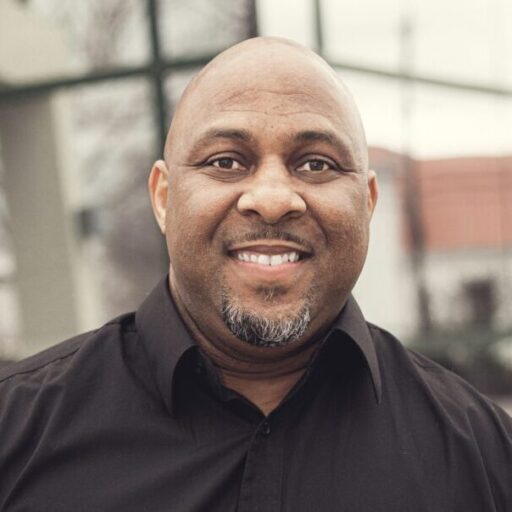During the COVID-19 pandemic, we have grown accustomed to hearing certain occupations described as “essential workers.” With the deadly pandemic combated via quarantines and vaccinations, psychologist could possibly among the most essential occupations.
Dr. Natasha Manning-Gibbs says it’s unfortunate it took the coronavirus for many to address their mental health. Witnessing the closure of businesses, job loss, weight gain and overall anxiety, the spike in people seeking help is at an all-time high.
Even with the reopening of several states and the easing of restrictions, it’s important to take the proper steps to ensure you are prepared physically and mentally to get back into the swing of things. Manning-Gibbs, who has a private practice in New Jersey, also runs a mental-health unit inside a juvenile prison.
She spoke to Zenger News about preventative methods to avoid depression and mental breakdowns and points out the signs of mental deterioration.
Percy Crawford interviewed Dr. Natasha Manning-Gibbs for Zenger News.
Zenger: How are you doing?

Dr. Manning-Gibbs: I’m doing well overall. Just looking forward to society getting back to what I’m calling a new normal. I don’t think we will ever get back to normal, but a new normal.
Zenger: Where did you earn your degrees?
Dr. Manning-Gibbs: I have my Ph.D. in counseling psychology from Seton Hall University in New Jersey. My Master’s is in clinical psychology from Columbia University. I am a licensed psychologist in New Jersey, in private practice since 2012.
Zenger: How did COVID affect your practice?
Dr. Manning-Gibbs: Significantly. In talking with colleagues, I’ve found this is one of the first times we have been inundated with many people calling to connect with a psychologist or do therapy. The pandemic, especially with it going on as long as it has, really pushed people … to think outside the box about how they take care of themselves.
People who, prior to the pandemic, would never have considered therapy are doing so now. They know something emotionally is going on with them. They know that they have been dealing with these feelings of stress, anxiety and depression for a long time. I know people who watched a news program or read an article, and they said it helped them identify something emotional that prompted them to reach out to a professional. A large number of people are saying to me: “Hey, I need help.”
Zenger: The silver lining: It made us slow down, get out of go-go mode, and perhaps opened our eyes that something was a little off.
Dr. Manning-Gibbs: A large percentage of people took the time, especially the first couple of months, to say: “Let me reel this in.” Being at work, commuting to work, taking care of kids, are all external things, but in some ways, the silver lining of the pandemic is that a lot of introspection happened. Some of that can be hard, but it’s a beautiful thing to do because a lot of good can come out of it.

Zenger: We’re even seeing professional athletes come out and discuss their mental-health struggles and that’s a great start. It shows that what you do is essential.
Dr. Manning-Gibbs: [Psychologists] are on the front line to a certain extent. Not only is COVID-19 a physical condition, but it definitely triggered a lot of emotional and psychological issues, as well.
I have been labeled an essential worker because in addition my private practice, I also run a mental-health unit in a juvenile prison. If there is a snowstorm, we can’t call out. We are essential workers. We have to go in during a state of emergencies, but outside of the prison, I appreciate the spotlight being put on our profession.
Zenger: How important is it for people to pay attention to the potential signs that maybe they aren’t OK because they contracted COVID? Or lost their job due to the pandemic? What signs should they look for.
Dr. Manning-Gibbs: I work closely with several physicians who refer me patients who never thought about therapy, but have been dealing with high blood pressure for years and their medication isn’t working. So, finally the doctor says: “They may be more psychosomatic, go see, Dr. Manning-Gibbs.”
A far as COVID, people are not just relying on their primary-care physicians to say: “Go see somebody.” They can look at is some of those physical symptoms their PCP has always been concerned about. Taking a look at how you physically feel. The tension in your body. Sometimes, that’s a big indicator. It’s like, “Wow,” something emotionally is going on with me. I’ve been dealing with this tension headache. I’ve been dealing with this migraine; my shoulders are really tight.” Do an internal scan of your body.
On the emotional side, a lot of people are snapping. They are easily annoyed. They are irritable with their spouse or children. That could be another sign that people could be on the lookout for. Also be aware of mood swings. One minute you’re feeling OK, and the next you feel like you’re breaking down emotionally. Fluctuating moods are something to be mindful of — and if it’s not what you think it should be, reach out to a mental-health professional.
Another thing I have been seeing in the past year is a lot of anger. Especially working in a prison, I tell people I have developed an expertise on anger and rage. And often times, what I see in that population is that anger is often a mask for depression. It’s often a mask for sadness, especially among men.
Often, when people are really angry and upset, they don’t make that connection: “Maybe my chronic anger, frustration and rage have more to do with sadness than actual aggression.” If I had to pick the top four things, I would love for people to be on the lookout for physical tension that they might be experiencing in their body; the snapping and feeling easily annoyed; mood swings and anger; and yelling and screaming at loved ones.
Zenger: Before you leave home every morning, you use the mantra: “Get your mind right.” I can’t think of a better time than now for this to be useful. Could you expand on its meaning?
Dr. Manning-Gibbs: I’ve always done that, but I leaned into it purposefully this last year. It’s been this armor for me. We are going out into a world where a lot of people are hurting. A lot of people are angry and upset. They want to cut you off on the road, engage in arguments and become aggressive.
Over the past year, in particular, I have been intentional about putting on that armor every morning. My specific routine is let’s think of something positive. It can be spiritual, like listening to a great message from one of the pastors I follow, or reading something positive. People don’t have to follow what I do in my personal life, but what I suggest to clients is: come up with your own personal self-care routine. Lean into what will help you get through the day.
This can also include getting up and getting your body in motion. I have one client in particular who works for a Fortune 500 company. She’s a high-level executive, and what helps her get through the day is a high-intensity routine. That’s how she gets her mind right in the morning.
Zenger: In the African-American community, in particular, the word, psychologist is like a curse word. Why should anyone, including blacks, be embarrassed to seek help when it’s needed?
Dr. Manning-Gibbs: I love that question. One of the things I say to clients who had that myth, ‘Oh, I can just handle my problems on my own. I’m just going to lean into the church. I don’t want go see a shrink. That’s not for us, that’s for white people.’
One of my responses, within our community is: We will usually see somebody for a physical ailment. If you broke your leg, without hesitation, you would go in and see a professional. So, I compare the way we take care of ourselves physically, and say we should give the same level of care and focus to our mental health.
In order to be a whole being, you have to take care of your mental health. It’s really important for us to start switching gears in our mind. Our well-being doesn’t just have to do with how physically well we’re doing. It is also connected to how emotionally and psychologically well we’re doing. Another thing I lean on is” It’s grounded in research. The research doesn’t lie. Data indicates that therapy is helpful. Give it a try.
One of the things I love about this past year is that therapy is becoming more accessible. As for affordability, if somebody calls and says I’m out of their network and they can’t afford to see me, I’ll still support them and connect them to either Talkspace or BetterHelp. Those platforms allow you to speak to a psychologist or a therapist on a virtual basis. They do payment plans, and it’s more accessible.
(Edited by Matthew B. Hall and Fern Siegel)
The post Psychologist Advises ‘Getting Your Mind Right’ In These Turbulent Times appeared first on Zenger News.
 Westside Story Newspaper – Online The News of The Empire – Sharing the Quest for Excellence
Westside Story Newspaper – Online The News of The Empire – Sharing the Quest for Excellence




